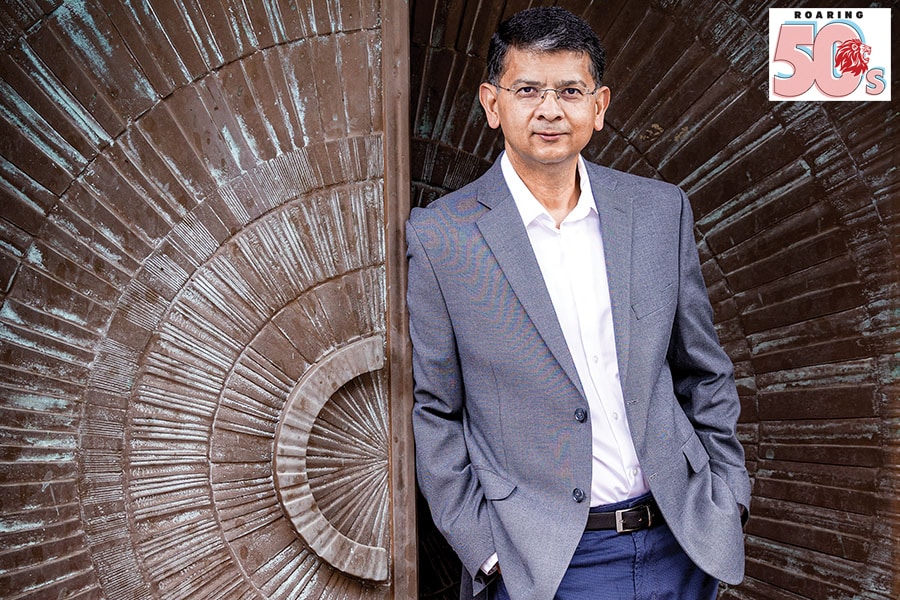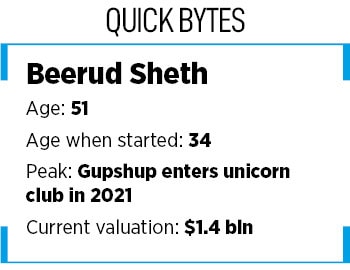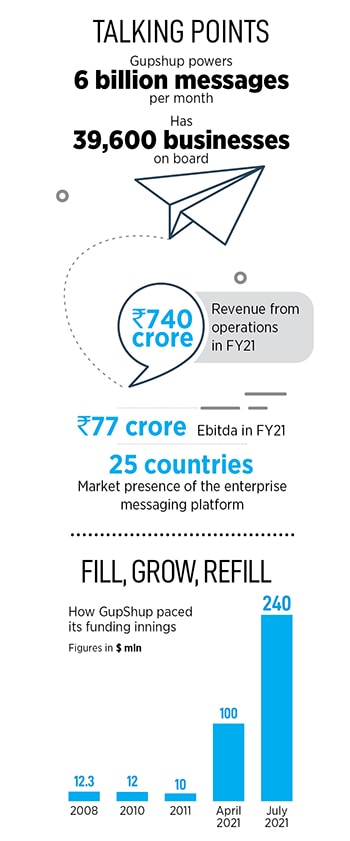
Entrepreneurship, dotcom bust, starting up again: How GupShup's Beerud Sheth keeps the fire going
As a second-time founder, Sheth got a first-hand experience of the highs and lows of entrepreneurship. He's built an enterprising company in GupShup
 I am not euphoric when great things happen. Nor am I depressed when bad things hit us. This is what age does: Beerud Sheth, co-founder and CEO, Gupshup
I am not euphoric when great things happen. Nor am I depressed when bad things hit us. This is what age does: Beerud Sheth, co-founder and CEO, Gupshup
Image: Robert Houser
Beerud Sheth had all the reasons to succeed from Day 1. That is what a bright 28-year-old thought when he dumped his lucrative Wall Street jobs—stints at Citibank and Merrill Lynch for four years—to start Elance in 1998. The IIT-Bombay grad, who went on to complete his master’s from MIT, was building an online marketplace for freelancers. All that mattered to him was intellectual stimulation, which, unfortunately, was largely missing in his previous jobs. “It was a lot of buy low and sell high,” he recalls, alluding to the nature of his profession. Though there was big money to be made, Sheth was not lured by the dollars. “Money alone never pushed me,” he says.
What pushed him out of his job was a disruptive idea. Over two decades back, working from a remote location was almost an alien concept. The young founder, with his big-bang revolutionary startup, was set to take the world by storm. Buoyed by a high-adrenaline rush, the rookie entrepreneur was ready to gallop.
With Elance, the Wall Street high-performer was trading comfort for a promising future. For the first year, his salary was zero. “I was living on my wife’s income,” says Sheth, explaining why it was hard for him to take a risk. A part of the blame, he lets on, goes to his high performance in school, college and then a high-paying job. He came first in the National Talent Search, a national scholarship programme at the secondary school level to identify students with high intellect and academic talent; was ranked third in the Indian Math Olympiad; was a top ranker in the IIT entrance exam; and went on to crack MIT.
A flawless track record, and a bright past, only meant one thing: A bright future. “It makes you think that you can succeed at everything,” he says. With a feeling of invincibility, the lines between the real and reel got blurred.
(This story appears in the 30 November, -0001 issue of Forbes India. To visit our Archives, click here.)




 Meanwhile, in December 1998, the young prince made a fairytale beginning. Angels handed over a million dollars in funding next March. Then came the bigger cheques: $12 million and $50 million in October 1999 and August 2000, respectively. “It was like wow, awesome. We will be the biggest company in the world,” recounts Sheth, who is now 51.
Meanwhile, in December 1998, the young prince made a fairytale beginning. Angels handed over a million dollars in funding next March. Then came the bigger cheques: $12 million and $50 million in October 1999 and August 2000, respectively. “It was like wow, awesome. We will be the biggest company in the world,” recounts Sheth, who is now 51. 
 To avert an imminent death, SMS Gupshup made a B2B pivot. The name changed to
To avert an imminent death, SMS Gupshup made a B2B pivot. The name changed to  Ask him how he is different from a 20-something or a founder in their 30s, and he flashes a broad smile, and one-word reply: Maturity. It’s just like cricket or chess. “You only get better if you play a long innings. You can see the patterns, and you can spot the nuances,” he says. As a seasoned entrepreneur, he has also learnt to spot the difference between urgent and important. He explains. “I no longer reply to every mail instantly,” he smiles, adding that time management is an asset that one learns over the years.
Ask him how he is different from a 20-something or a founder in their 30s, and he flashes a broad smile, and one-word reply: Maturity. It’s just like cricket or chess. “You only get better if you play a long innings. You can see the patterns, and you can spot the nuances,” he says. As a seasoned entrepreneur, he has also learnt to spot the difference between urgent and important. He explains. “I no longer reply to every mail instantly,” he smiles, adding that time management is an asset that one learns over the years. 



